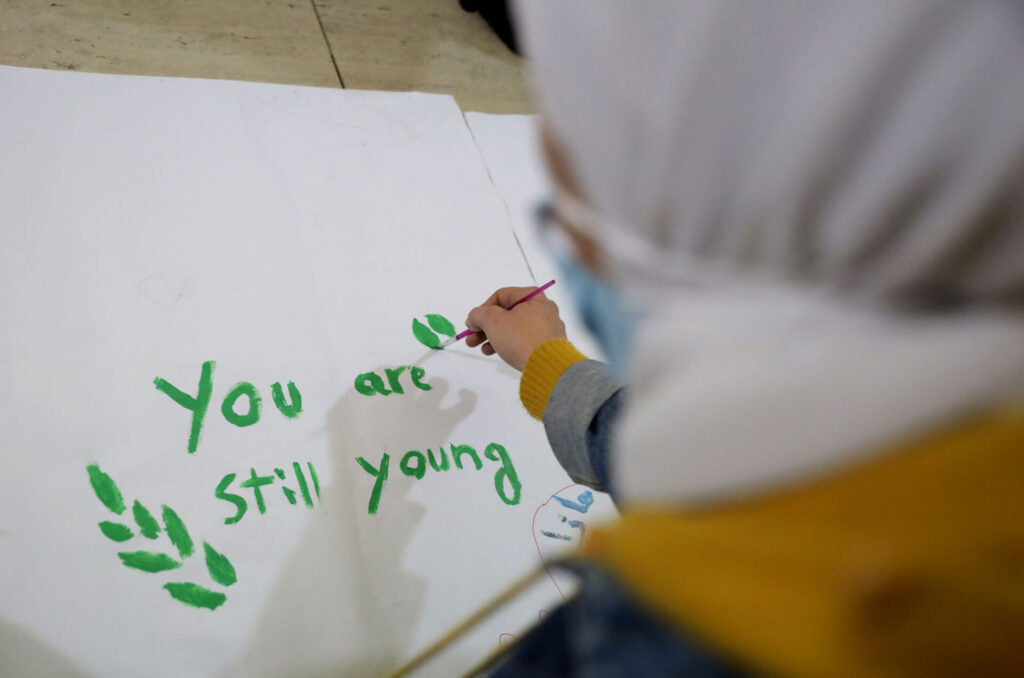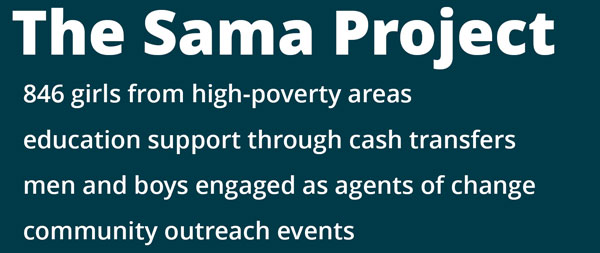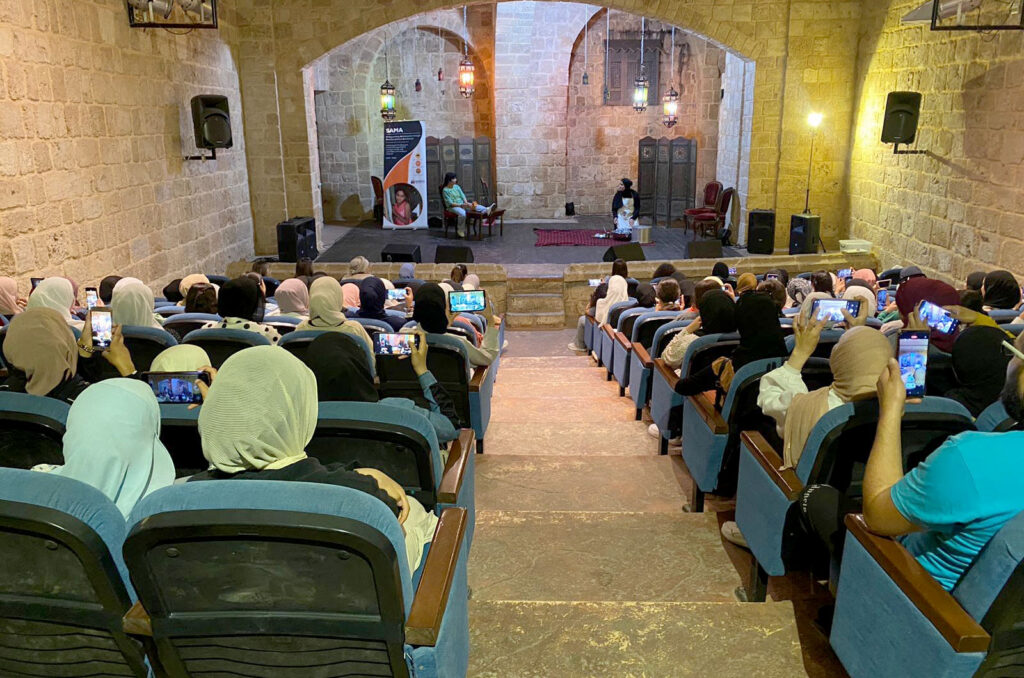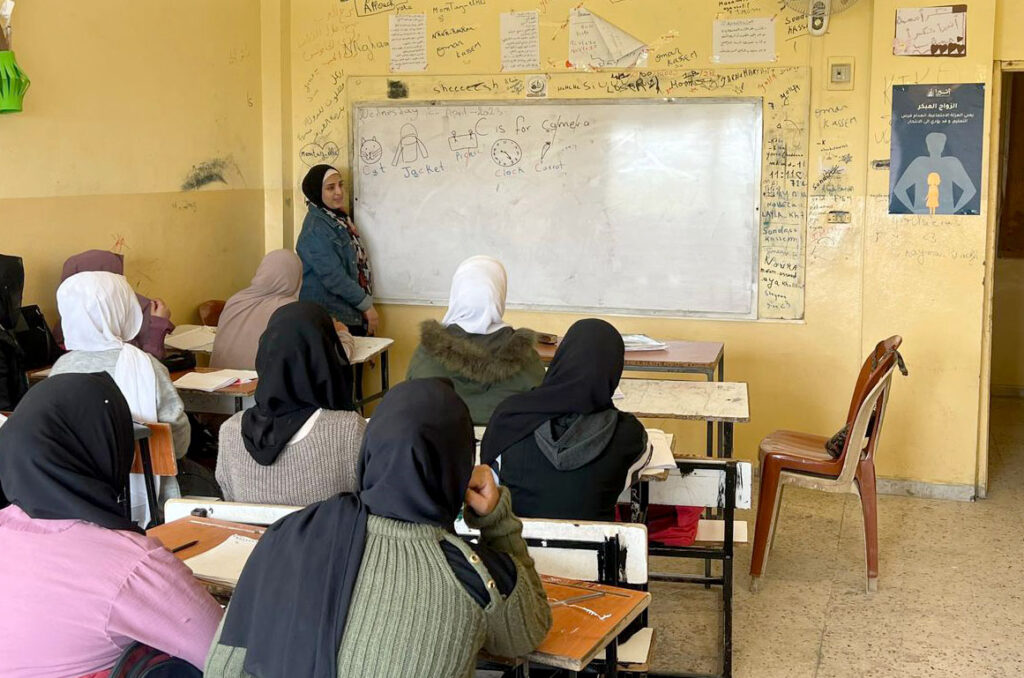Mitigating Early Marriage in Lebanon: The Sama Project
Gender equality and empowering women and girls are fundamental to creating equitable societies. Anera has been actively addressing the critical issue of early and forced marriage among vulnerable populations in Lebanon through the innovative Sama Project over the past two years. In this blog post, we explore the remarkable success of the Sama Project, which has brought hope to more than 800 girls and their communities.
The Urgent Need for Action
Early and forced marriage is a deeply entrenched issue, especially among displaced populations. Shockingly, 41% of Syrian refugee women aged 20-24 in Lebanon were married before turning 18. With over 1.5 million Syrian refugees in Lebanon, including 715,000 children, and approximately 430,000 children out of school, the vulnerability to early marriage is alarming.
The Power of Education
Extensive evidence demonstrates that education plays a pivotal role in delaying girls’ marriages. Programs supporting girls’ schooling through financial assistance have been particularly effective. Engaging men and boys in community-based interventions has also shown promise in preventing child marriage. The Sama Project was designed with these insights, creating a multifaceted approach to tackle child and forced marriage head-on.


The Sama Project
The Sama Project, launched in August 2021 with a two-year budget of $1 million, stands out as a unique and comprehensive initiative in the MENA region. It combines a range of activities aimed at increasing the chances of success while also actively involving community advocates, especially men and boys. Let’s take a closer look at the components of this remarkable endeavor.
Over the project’s duration, 846 girls from 700 households were enrolled, and an additional 370 girls formed a control group for comparison. These girls were closely monitored using various research methods to assess their educational status, including retention, school performance, and marital status.


Cash for Education to Address Root Causes
A key strategy of the Sama Project was providing conditional cash transfers of $250, paid in two installments, to families with girls aged 13-16. These transfers aimed to alleviate economic burdens on vulnerable families and encourage girls to stay in school. An additional $50 was provided to cover exam fees for select girls in Grade 9 and Grade 12.
Community Mobilization and Sensitization
The Sama Project also trained 30 men and boys to serve as “Agents of Change.” These individuals played a crucial role in conducting community awareness campaigns on gender equality and the harmful impacts of child marriage. Organizing community theaters, puppet shows, and awareness sessions reached more than 450 men, challenging entrenched norms surrounding early marriage.


Remedial Education
The Sama Project offered remedial classes, awareness sessions, community mobilization, and sensitization campaigns. Building upon the success of many youth basic literacy and math courses, Anera initiated supplementary remedial classes for three months, which benefitted 370 girls across Berkayel, Halba, Tal Hayat, and Nahr El Bared camp in Akkar. These classes were tailored to meet the educational needs of grade 5 to 9 students.
Life and Career Skills
Anera incorporated a 50-hour life skills curriculum into our three-month remedial classes package. These life skills sessions covered self-management (self-esteem, identity confirmation, and responsibility), cognitive skills (decision-making and problem-solving), social skills (communication and listening), understanding and acceptance of others (negotiation), and leadership skills (leadership, teamwork, and self-planning). The ultimate goal was to enhance retention rates among girls in education through this holistic approach.
Retention of Students in School
Anera diligently tracked school attendance and academic performance, collecting and verifying documents such as attendance sheets and report cards on a semester basis. In cases of high absenteeism exceeding a predefined threshold of two consecutive weeks, proactive measures were taken, including contacting the absentees to understand the reasons and providing necessary support services to help them re-engage with education.
Supplementary Activities
Beyond the core components, the Sama Project organized supplementary activities to motivate and retain girls in the program. These included 30 awareness sessions on topics like gender-based violence and career guidance. Support classes and a 50-hour life skills curriculum addressed specific educational needs.


Who Benefited from the Sama Project?
A total of 878 girls were enrolled over two years, with 846 successfully retained by the end of the 2022-2023 school year. Anera selected Akkar as the best location for the project because it is a highly vulnerable region with a dense concentration of impoverished communities, including Syrian refugees, Palestinians and Lebanese. We carefully selected girls from high-poverty areas to ensure that the program reached those who needed it most. The demographics were 10% Lebanese girls, primarily from public schools; 20% Palestinian girls from UNRWA schools, and 70% Syrian refugee girls.
Key Findings from the Sama Project
The Sama Project’s comprehensive surveys, assessments and a final roundtable discussion uncover a compelling narrative of resilience and the transformative power of education among girls and families facing daunting challenges.
- Despite a concerning drop in second-year enrollment, the commitment to education remained strong, with all families intending to enroll their unregistered girls.
- Transportation expenses posed a financial hurdle, and concerns were raised by approximately three-quarters of participants.
- Health challenges emerged, with 3% of girls reporting disabilities and 5% suffering from chronic illnesses, often without access to treatment.
- Despite half being unaware of Lebanon’s legal marriage age, most preferred their daughters to pursue university education before marriage.
- Most participants did not view marriage as providing protection; instead, education was seen as the key to safeguarding their daughters.
- Parents expressed hopes for their daughters’ university education within five years, despite financial challenges.
- A mid-year check-in survey in 2022 found only 1.6% of the intervention group reported marriages, compared to 5.2% in the control group.
- Child marriage rates were lower in the intervention group (3%) compared to the control group (8.8%). Educational cash assistance positively affected school performance and well-being, with over 97% of caregivers endorsing its impact.
- An endline survey, with a commendable 96% response rate, assessed the program’s impact: 98% of caretakers agreed that the education cash assistance played a significant role in improving their girl’s performance in school; and 99% of caregivers stated that if the project is to be renewed and their girl was selected, she will be committed to the project and school.
In Summary
The Sama Project empowers girls, enhances access to education, and challenges societal norms. Despite significant obstacles, the determination of these girls and families highlights the transformative potential of programs like Sama in refugee communities.
Through its dedication and innovative interventions, the Sama Project has not only transformed the lives of countless girls but also serves as a model for future efforts to promote gender equality and protect the rights of vulnerable populations. As we celebrate the achievements of the Sama Project, let us remain committed to the cause of gender equality and the well-being of women and girls around the world. Together, we can create a brighter and more equitable future for all.
OUR BLOG
Related
Joint Statement 200+ NGOs call for immediate action to end the deadly Israeli distribution scheme (including the so-called Gaza Humanitarian Foundation) in Gaza, revert to the existing UN-led coordination mechanisms, and lift the Israeli government’s blockade on aid and commercial…
